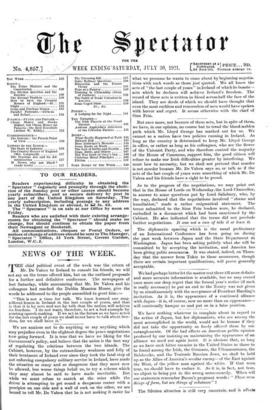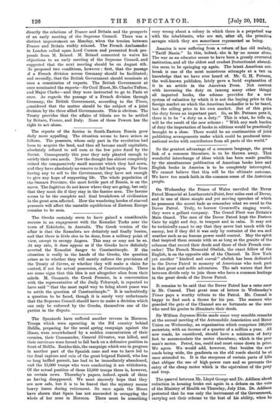The Silesian situation is still very uncertain, and it affects
directly the relations of France and Britain and the prospects of an early meeting of the Supreme Council. There was a distinct improvement on Monday, when the tension between France and Britain visibly relaxed. The French Ambassador in London called upon_ Lord Curzon and presented fresh pro- posals from M. Briand. M. Briand consented to waive his objections to an early meeting of the Supreme Council, and suggested that the next meeting should be on August 4th. 'de proposed two conditions, however:, first, that the passage pf a French division across Germany should be facilitated; and secondly, that the British Government should nominate at once a commission of experts. The British Government at once nominated the experts—Sir Cecil Hurst, Mr. Charles Tufton, and Major Clarke—and they were instructed to go to Paris at once. As regards the passage of • a French division through Germany, the British Government, according to the Times, considered that the matter should be the subject of a joint decision by the three allied Governments. This is obvious. The Treaty provides that the affairs of Silesia are to be settled by Britain, France, and Italy. None of these Powers has the right to act alone.



































